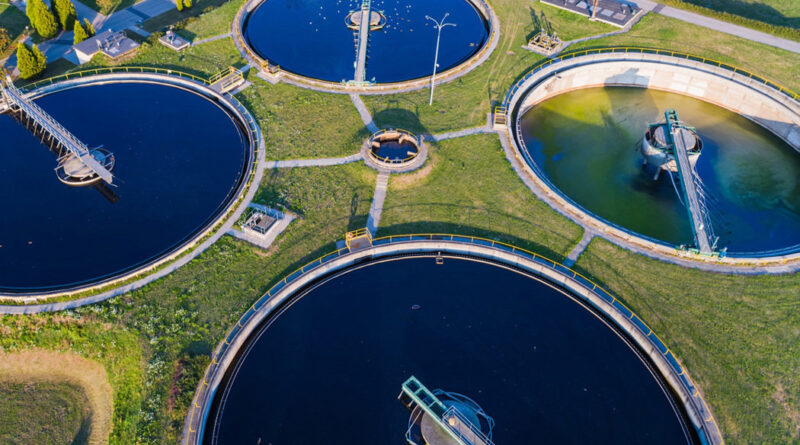World Mental Health Day: Raising awareness is key to reducing stigma, experts say
RIYADH: With a rapidly growing population, limited natural water resources, and the harsh realities of climate change, Saudi Arabia is looking to international experts to improve its water supply and treatment systems. .
Among those responding to the call are companies and consultants from Denmark, contributing their extensive knowledge and innovative solutions in wastewater management to support Saudi Arabia’s operational plans.
Partnerships with Danish firms such as Danfoss, Grundfos, and AVK help the Government manage its water resources more effectively, reduce water waste, and reduce its environmental impact.
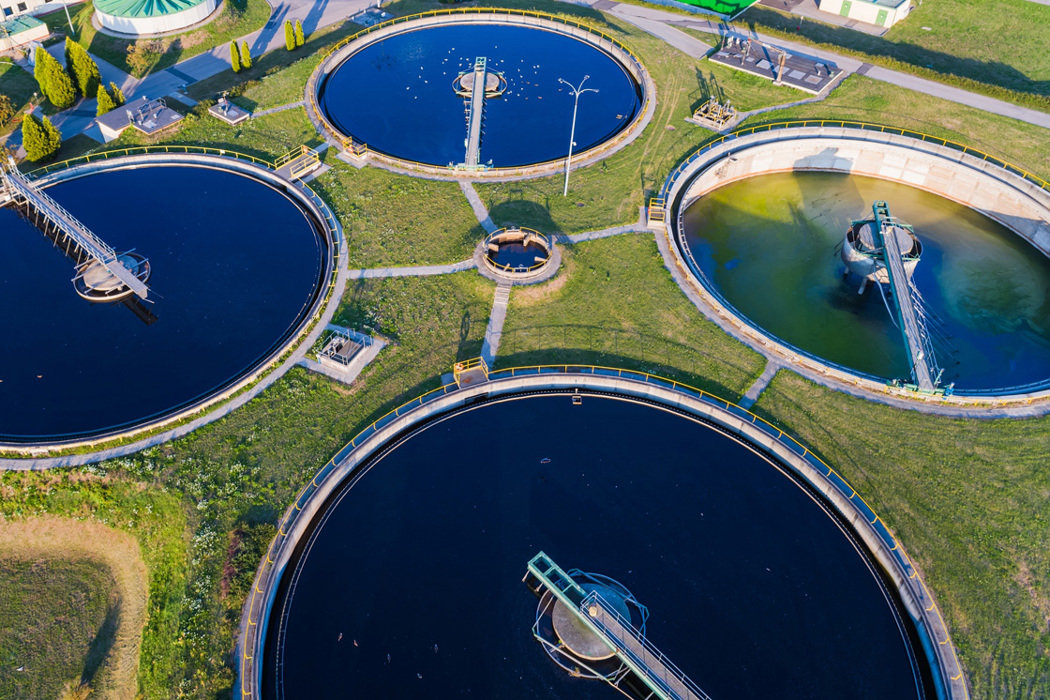
Danfoss uses advanced real-time control in its water treatment plants to improve energy efficiency, reducing energy consumption by 20-40%. (Danfoss Image)
Saudi Arabia, a country that relies heavily on groundwater and desalination, faces many challenges in managing water resources.
According to a 2019 report titled “The Analysis of Wastewater and Water Resources in Saudi Arabia,” the Kingdom’s water demand has increased over the past two decades.
Between 2007 and 2018, the population increased from 25 million to 33 million, which led to a growing demand for clean water.
However, only a fraction of the wastewater in Saudi cities is treated and reused. According to a 2021 report from King Saud University, 78 percent of wastewater in Dammam is treated, 60 percent in Riyadh, and 50 percent in Jeddah.
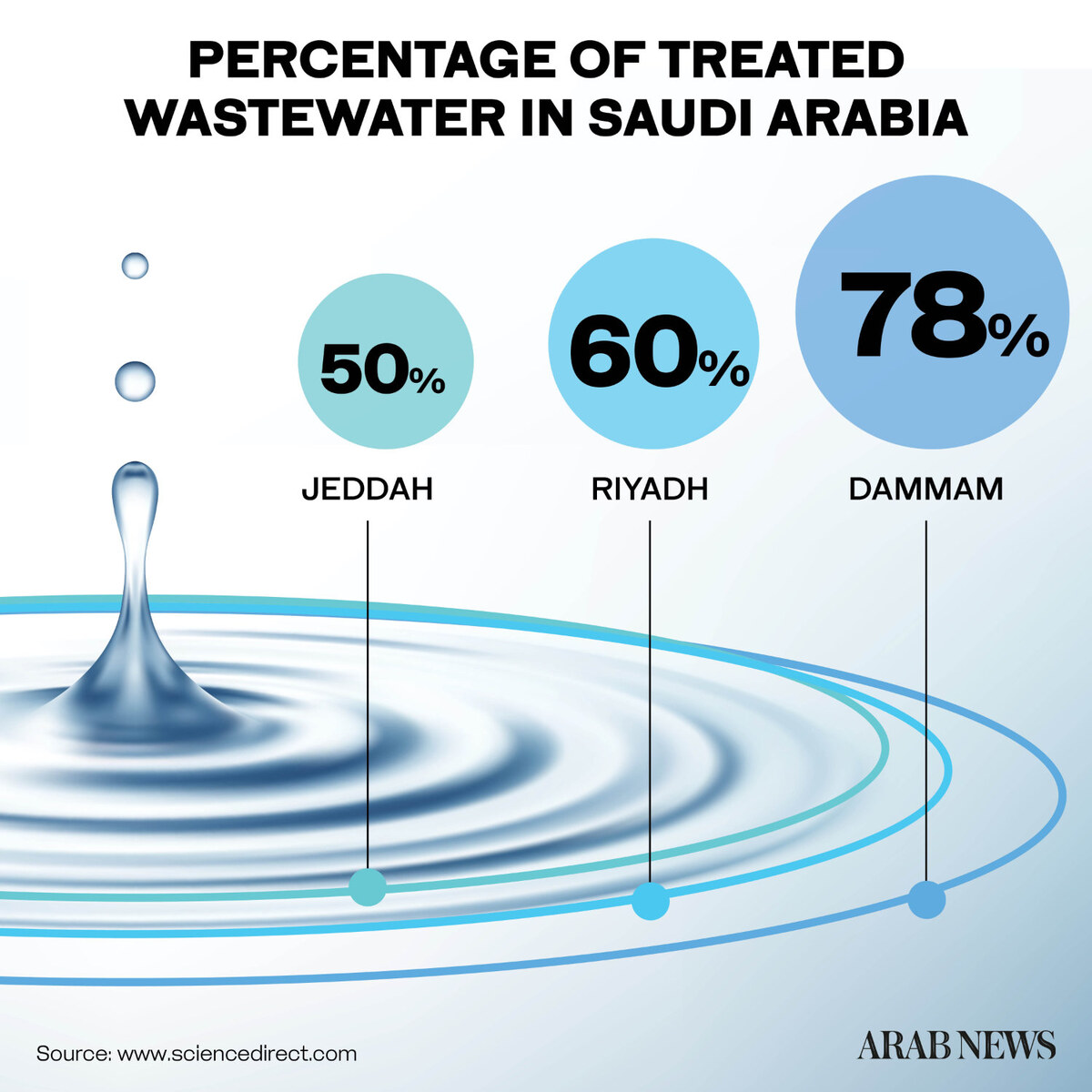
In order to combat pollution and promote the reuse of fresh water resources, the Government has sought the expertise of Danish firms known for their development of sustainable water management.
Jacob Vind, global water industry expert at Danish engineering firm Danfoss, highlighted the importance of addressing water scarcity in the region.
“In fact we are in the midst of a very severe and widespread water challenge. There is not enough water,” Vind told Arab News.

In the final step of the wastewater treatment process, the water flows to secondary sedimentation tanks where the water is clear, odorless, and considered completely treated. (Shutterstock Image)
He also emphasized that the increasing demand for water, accompanied by climate change, makes it important for governments and industries to adopt advanced water management methods.
Denmark has long been recognized for its innovative wastewater management policies. The country boasts a well-developed wastewater infrastructure, including advanced purification, treatment, and energy recovery systems.
Denmark’s approach to water conservation relies on new technology that reduces water waste while saving energy and resources.WORK FOR MEKNOW?
• 380 billion cubic meters of municipal waste is produced every year worldwide.
• Untreated water is a breeding ground for various diseases including cholera and typhoid.
• Most wastewater treatment plants are designed to last only 15-20 years.
Danish engineering firms such as Grundfos are influential in Saudi Arabia by developing solar-powered pumping equipment to provide water in remote and off-grid areas where electricity may be limited.
According to Morten Riis, the company’s group executive director, their water solution not only targets groundwater and rivers but also focuses on reducing water loss and improving energy use. at that time.
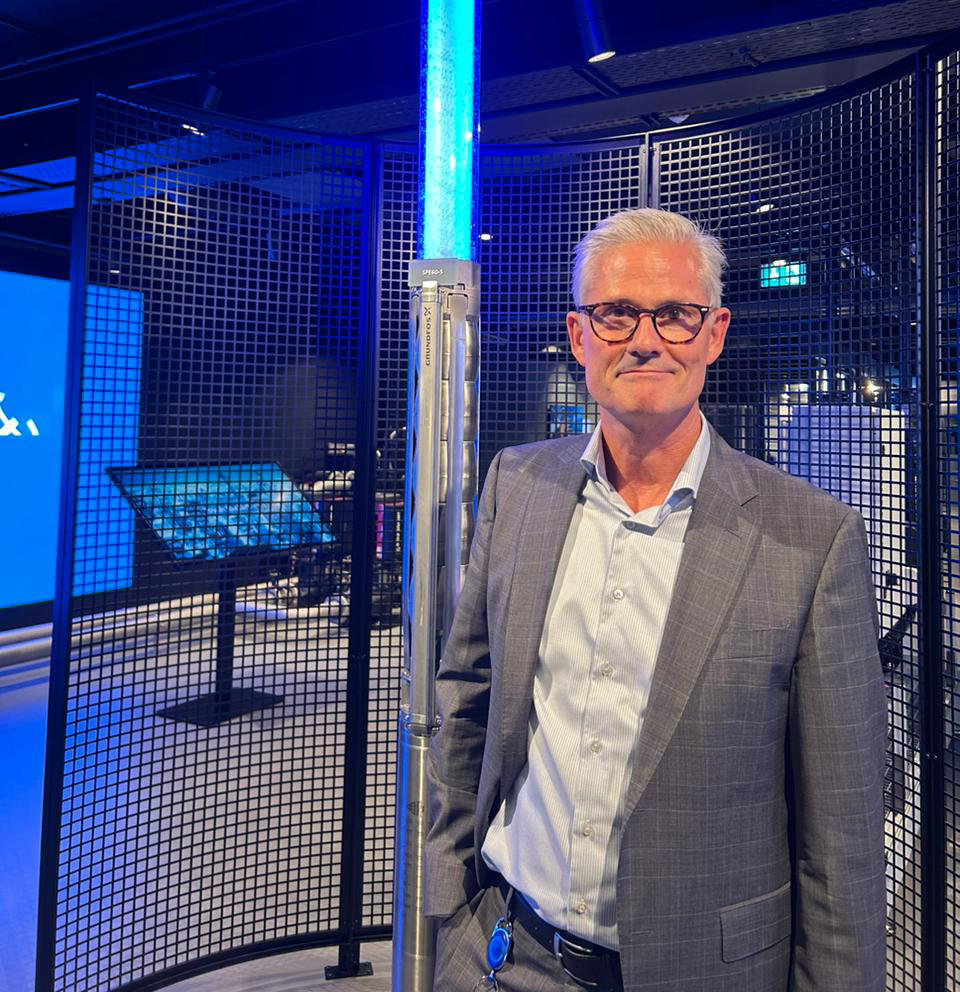
Morten Riis, senior group director and head of group external relations at Grundfos. (Photo by Haifa Alshammari)
“We have a smart solution that can not only reduce water loss but also reduce energy consumption by controlling the pressure in the water system,” Riis told Arab News.
This expertise is particularly important in Saudi Arabia, where recycled wastewater is expected to play a key role in ensuring a sustainable future.
The report “Water Treatment and Water Resources in Saudi Arabia” highlights how wastewater treatment services in the Kingdom lagged behind demand in the 1990s, resulting in 40 percent of untreated wastewater discharged into the environment.
However, recent investments and foreign collaborations are changing the situation.
This section contains information related to references, posted in (Comment field)
In addition to the solar pumping stations developed by Grundfos, another Dutch engineering firm Danfoss is helping Saudi Arabia to implement efficient water technologies that use less water, energy and chemicals. ‘old.
Vind said that although the technologies for purifying water are available, the challenge is to make it affordable and feasible.
“Regarding recent developments, I want to emphasize that good water systems use less water, less energy or chemicals and resources in general,” he said.
Meanwhile, for the past 30 years, the Danish company AVK International has been providing solutions for waste water, providing valves, hydrants and equipment for water, gas and sewage in Jeddah.
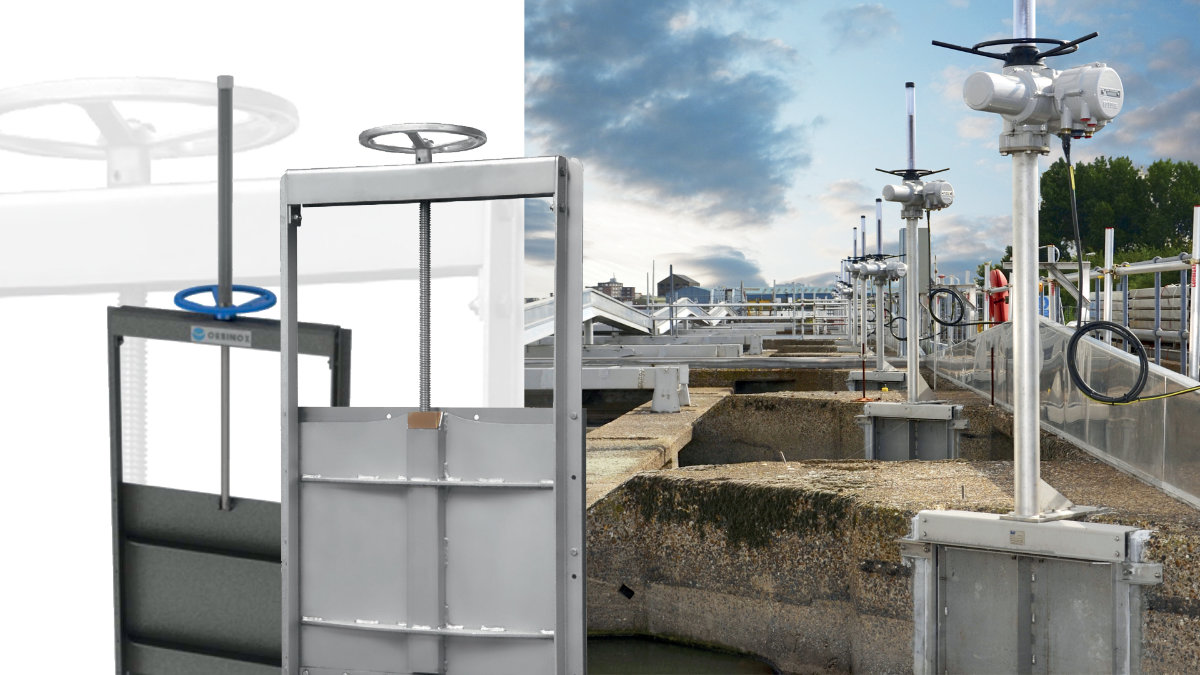
AVK International manufactures penstocks, which are used for wastewater treatment, pumping stations and wastewater collection. (Photo by AVK)
Wastewater treatment involves several steps to ensure it meets safety standards for various uses, such as irrigation, industrial processes and drinking water.
At the beginning of the process, the first treatment includes the removal of large waste and solid particles using screens and sedimentation tanks. This is followed by primary treatment, where the water passes through sedimentation tanks. Here, small solids often form sludge.
During the second treatment, aeration is introduced to stimulate the microorganisms that destroy the organic matter, removing a lot of waste. Then, in a process known as tertiary treatment, the water is filtered and treated with disinfectants to remove harmful organisms, making it usable for irrigation and industrial purposes. .
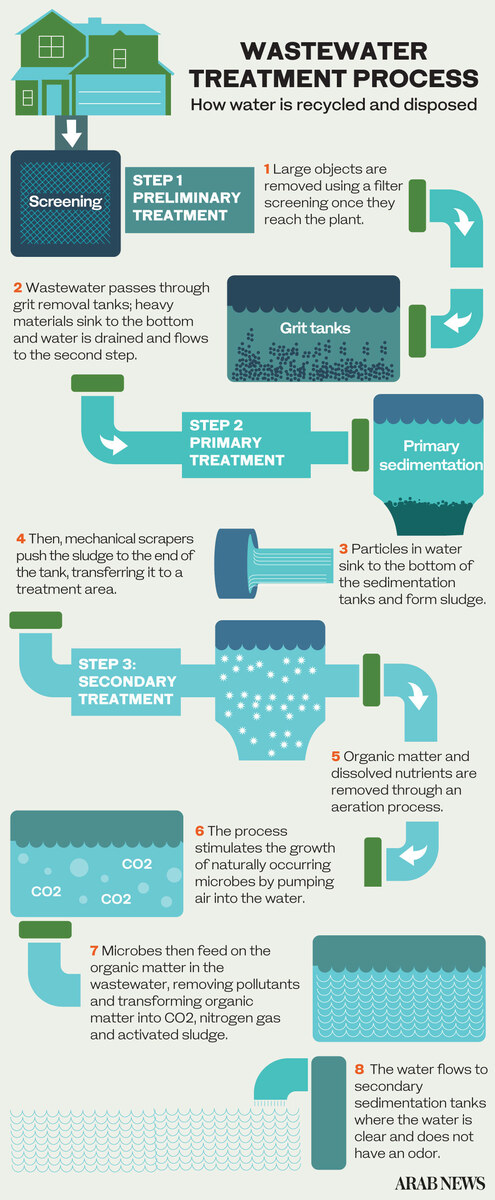
Other processes include advanced treatment including reverse osmosis and UV filtration, making the water safe for human consumption.
In fact, stability does not begin in the treatment phase. Policies designed to protect clean water at its source are just as important.
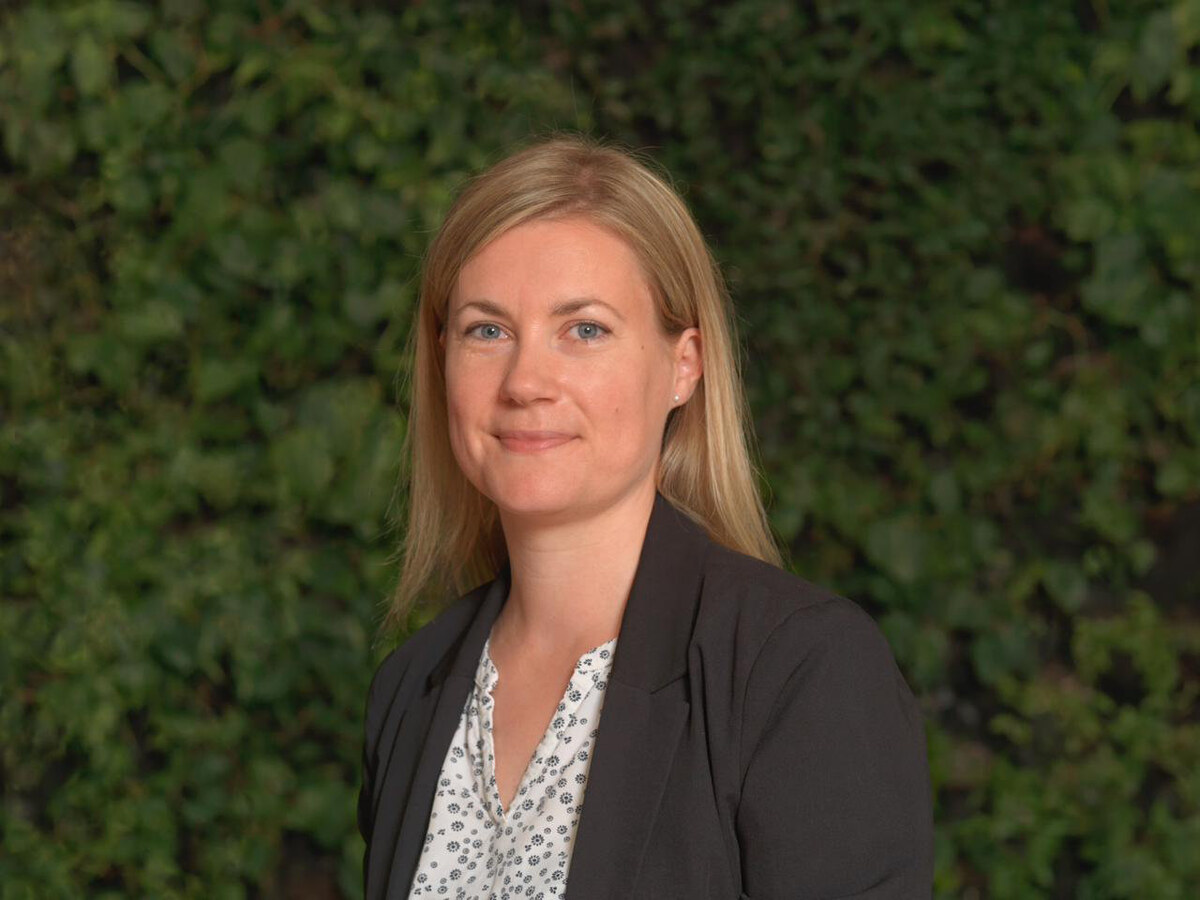
Tanya Gottlieb Jacobsen, deputy director of the Danish consultancy State of Green. (Given)
“We get our drinking water from groundwater, so we focus on prevention, and we always have a prevention strategy that is better than advanced drinking water treatment,” Tanya Gottlieb Jacobsen, deputy director of the Danish consultancy State of Green, told Arab News.
Denmark’s holistic approach to water conservation – focusing on prevention, smart technologies, and strategic investments – is closely aligned with Saudi Arabia’s Vision 2030 goals, which prioritize economic diversification as well as environmental stewardship .
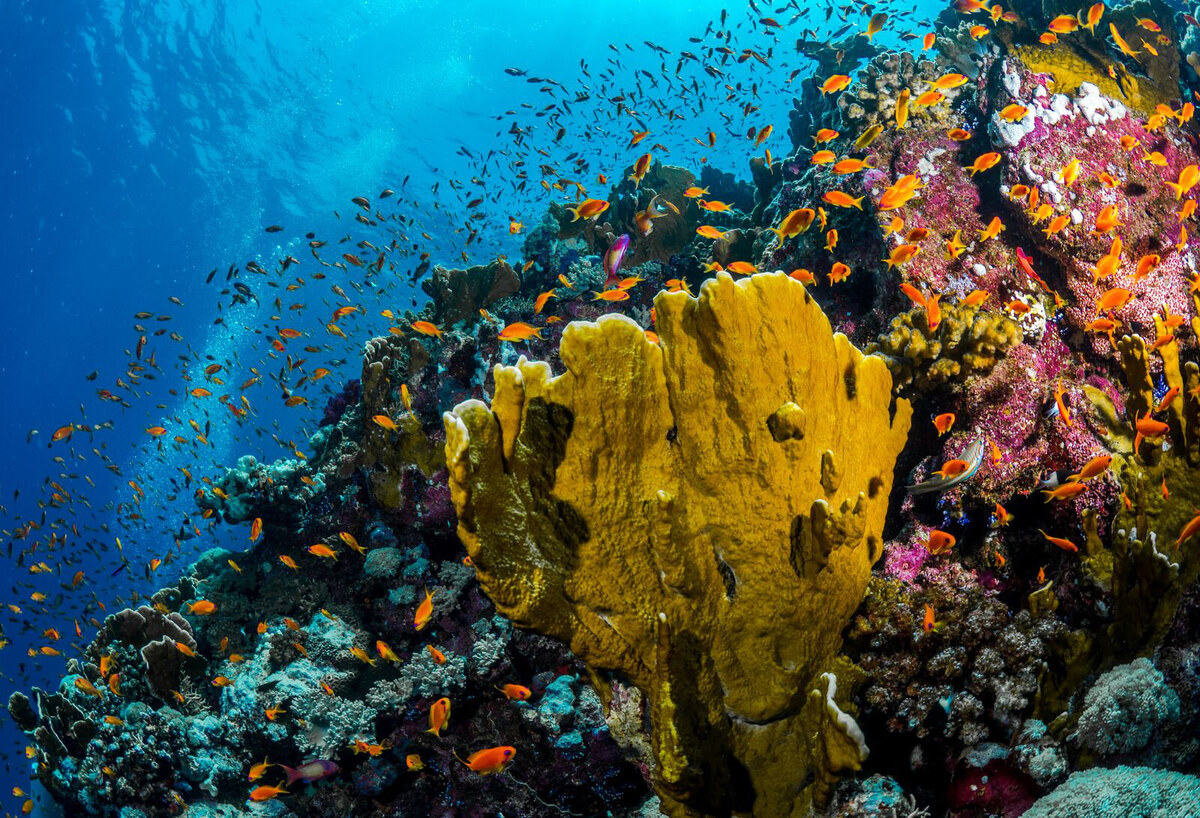
By eliminating pollutants from the water, people support biodiversity, protect marine life, maintain ecological balance and promote sustainable urban development. (Image credit: Red Sea Global)
As the Government uses the latest technology and incorporates Danish experience in its water infrastructure, it is taking important steps to secure its water future.
These efforts will not only help Saudi Arabia mitigate the effects of water scarcity and climate change but will also position the country as a leader in sustainable water management in the region.
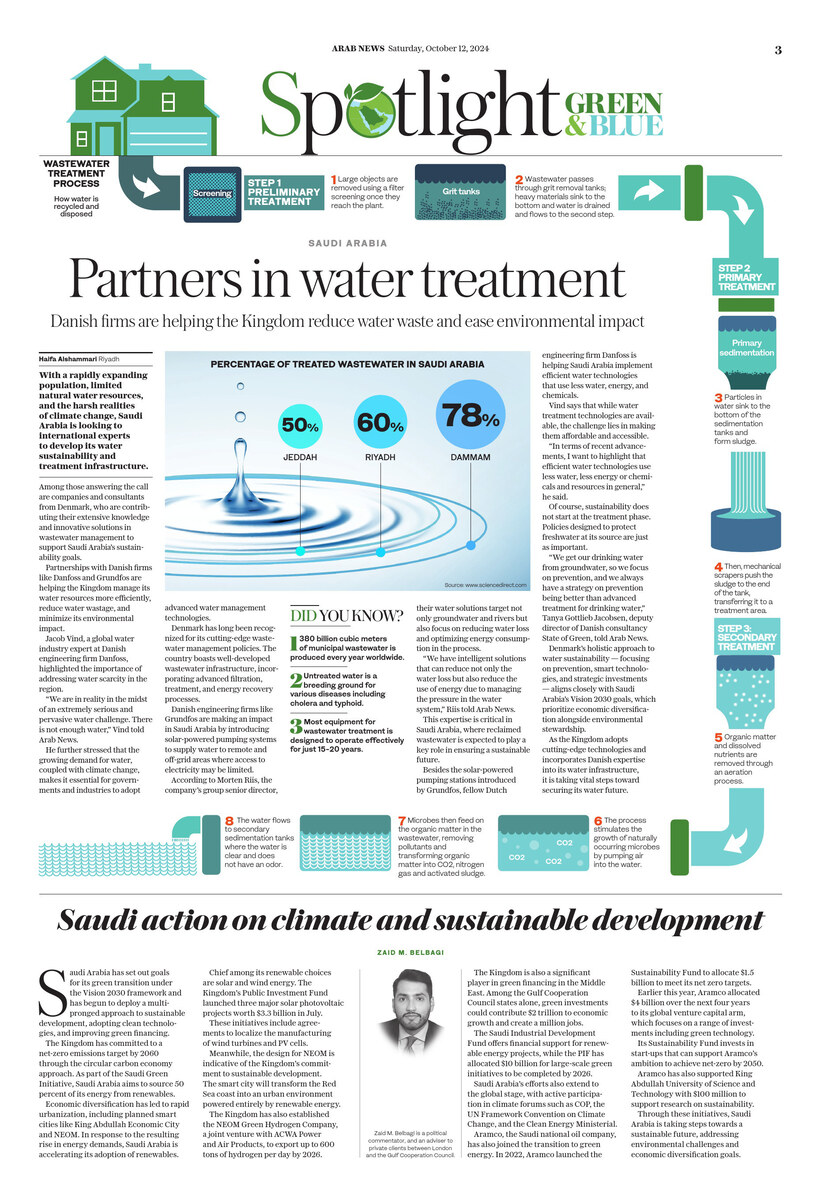
#World #Mental #Health #Day #Raising #awareness #key #reducing #stigma #experts
